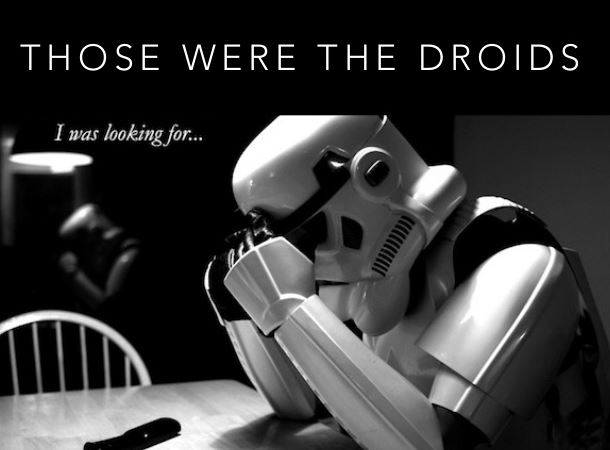“A great leap forward sometimes requires two steps back” – Obi wan-Kenobi
The uncommon virtue
Patience is a virtue and is often viewed as an ideal Jedi trait. The calm and passive Obi wan-Kenobi deliberate in his words and actions and the meditative Yoda an epitome of patience whether consulting with fellow members of the Jedi Council on Coruscant, discussing strategy in a battle briefing or training Luke Skywalker in the ways of the force on Dagobah show the merit of the virtue. Jedi were patient, it was in their nature and in their training to show patience regardless of the circumstances.
Often the Jedi could also be impulsive and reckless wanting to rush off in to battle. Quinlan Vos was not your usual Jedi and is seen as a maverick by Obi wan-Kenobi in the hunt for Ziro the Hutt. Quinlan Vos later joins Asajj Ventress in a plot to assassinate Count Dooku where his impulsive nature eventually leads him to make choices that run counter to the Jedi Path. Luke Skywalker is also impatient throughout his adventures barely reined in by the advice of Obi wan Kenobi and later Yoda. Anakin on the other hand is the least patient of all the Jedi and while his insistence for direct action all the time and doing things his way gets results during the Clone Wars it does come at a price which in the end costs him everything.
“Patience Master Patience” – Ahsoka Tano to Anakin in the Clone Wars “Blue Shadow Virus”
Patience was never a virtue of mine and it is rare among alcoholics and other addicts. Once we want something and our mind is fixed on it we have a single minded purpose that ignores the consequences. Our thirst for whatever is desired overrides reason and logic. We cannot be told to wait and to stop us from getting what we want is akin to being prevented oxygen. Our lack of patience extends to people, places and things.
One thing to another
We grow tired of our relationships or we are never satisfied with the people in our lives always demanding more from them and often more than they can give or are prepared to give. Our jobs become a revolving door affair, soon impatient with co-workers, conditions or the lack of recognition in our many talents we either quit or force our employers to remove us. Some of us are constantly on the move seeking the “geographic solution” and then become quickly bored or disillusioned with new places and situations after a short honeymoon. Our possessions no matter how greatly desired or paid for soon lose their shine and we want to move on to new things. Never content, never satisfied, least of all with ourselves.
In some ways the lack of patience is a good thing. For example it can drive one to succeed and arrive at their goals sooner. An impatient man is rarely satisfied with mediocrity and demands better. As an alcoholic my impatient nature led me to some major successes in my life but not without cost to relationships, principle, pride and health. I burnt people along the way as well as bridges and compromised on my integrity time and again until I was morally bankrupt.
Stop, Think, Assess and Rectify
Patience is a virtue and it is hard won and easily lost but every moment we live in patience is a moment lived well as it allows you to enter the flow of life and for once not fight against the stream. Time slows down and we start to connect with others and find our true inner self. Being sober has taught me a lot about patience; to slow down and allow things to happen as they will without forcing them along especially in recovery and with my relationships. To live and let live and to “Let Go and Let God”.
Doctors are correct when they advise Patients to be patient with their healing, that is because nature (including your body, mind and soul) require time to heal when injured or sick. Oddly enough the word Patient comes from the Latin “to suffer” and to have patience no less means to show calm endurance and overcome base impulses to react, even if it means to suffer in silence to do so.
As the sense of urgency and impulsive instinct to act or speak rises today, take a step back as Obi wan suggested to Anakin and take a moment to consider your next step. Would you raise your voice in impatience at a child who doesn’t understand? Do you run a red light because you want to get home to put your feet up? Do you make enemies at work by being rude and impatient because things aren’t going as you want?
You rarely have to react in an instant to what is around you and things can wait. There is no need to get upset or angry at slow traffic because doing so will not make it move any faster. Time will move at its own pace and what better time to spend practicing the virtue of patience. Slow down, be calm, at peace, passive and let the Force in the moment flow through you.




